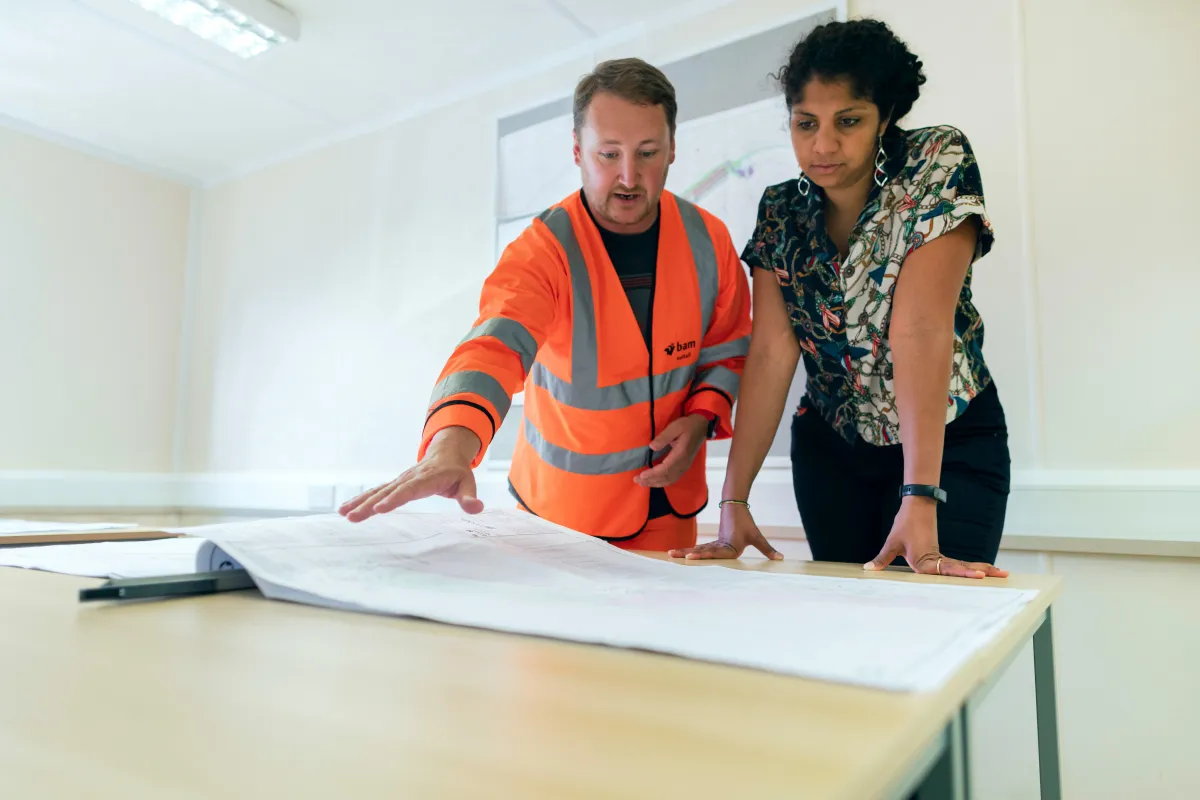
Key Techniques for Mastering Construction Costs Effectively
Are construction costs spiraling out of control? Creating an effective budget is vital for any successful project. This post will provide proven budgeting tips, covering cost management strategies and how to leverage technology for accurate estimates. By implementing these insights, readers will learn ways to minimize overspending, engage key stakeholders, and ultimately save money during the construction process. Addressing budgeting challenges head-on will empower homebuyers and property owners to take control of their projects, ensuring their dream homes come to life without financial strain.
Key Takeaways
Clearly defining project scope helps manage construction costs effectively from the start
Tracking all potential expenses ensures comprehensive financial oversight throughout the project
Allocating contingency funds provides a buffer for unexpected costs and enhances budget stability
Collaboration among stakeholders fosters communication and supports successful budgeting outcomes
Evaluating energy-efficient solutions can lead to long-term savings despite higher initial investments
Establishing a Clear Budget Framework for Construction Projects

Determining the project scope and requirements clearly is essential to setting a solid budget framework for construction projects. Identifying all potential costs, including those for materials and labor, ensures comprehensive expense tracking. Allocating contingency funds further supports effective resource management and quality assurance while addressing safety considerations to keep the project on track and within budget.
Determine Project Scope and Requirements
Establishing a crystal-clear project scope and detailed requirements is an essential initial step in mastering the intricacies of construction cost management. This crucial phase involves meticulously pinpointing every vital component of the project, from the choice of roofing style to the selection of durable materials and any specialized construction techniques that may be necessary.
Additionally, integrating sustainable practices, like recycling materials, can not only minimize waste but also lead to significant cost savings. Coupled with robust risk management strategies, this proactive approach enables teams to foresee and mitigate potential inflationary pressures and other financial challenges that may arise throughout the course of the project.
Identify All Potential Costs
Identifying all potential costs is a crucial step for anyone managing a construction project. This includes not only the obvious expenses, like building materials and labor, but also less visible costs, such as permits, insurance, and unexpected contingencies. Utilizing accounting software and project management tools can streamline this audit process, helping to ensure that no expense goes unaccounted for. By maintaining a detailed overview of costs, including using construction software for accurate tracking, stakeholders can make informed decisions and keep projects within budget.
Allocate Contingency Funds
Setting aside contingency funds is essential for achieving clear financial oversight during a construction project. By reserving a portion of the overall budget, project managers can deftly tackle unforeseen expenses without throwing a wrench into the workflow or exceeding financial limits. This forward-thinking approach to resource management not only protects financial resources but also helps to minimize discrepancies in both project schedules and budgets. Ultimately, this strategic reserve fosters a more seamless and efficient building process, paving the way for a successful outcome.
Implementing Effective Cost Management Strategies

Setting up detailed tracking and reporting systems is essential for effective cost management in construction projects. Regularly monitoring and reviewing expenses enhances transparency and provides clarity amid uncertainty. Implementing automation and data collection can simplify this process. Adjusting budgets and forecasts as needed enables project managers to respond proactively to changes, ensuring the project remains on track and budget-friendly.
Set Up Detailed Tracking and Reporting Systems
Setting up detailed tracking and reporting systems is essential for effective cost management in construction projects. Utilizing project management software allows general contractors to monitor expenses in real-time, enhancing the overall reputation of the project's execution. By incorporating innovative, environmentally friendly practices, construction teams can not only streamline their processes but also keep a close eye on the budget, ensuring that all financial aspects are addressed efficiently.
Regularly Monitor and Review Expenses
Consistently monitoring and reviewing expenses is vital for masterful cost management in construction projects. By leveraging advanced cost management software, project managers gain the ability to meticulously track expenditures on essential materials, such as the sturdy lumber that forms the backbone of any build.
This software allows for a deep analysis of price fluctuations driven by the consumer price index, revealing trends and insights that might otherwise go unnoticed. Such continual evaluation not only fortifies cash flow management but also uncovers opportunities for strategic adjustments. This proactive approach ensures that the project not only adheres to budgetary constraints but also flows seamlessly from one phase to the next, paving the way for successful and timely completion.
Adjust Budgets and Forecasts as Needed
Adjusting budgets and forecasts as necessary is crucial for maintaining financial control in construction projects. Techniques such as value engineering can provide cost-effective alternatives without compromising quality, which is essential for achieving quality control. Additionally, utilizing construction management software enables project managers to monitor expenditures closely, manage scope creep effectively, and capitalize on bulk purchasing opportunities, ensuring that the project remains aligned with its financial goals.
Utilizing Technology for Accurate Budgeting

Exploring construction management software options allows customers to enhance budgeting accuracy and streamline processes. By leveraging data for predictive budgeting, teams can anticipate risks and make informed financial decisions. Integrating collaboration tools facilitates real-time updates, improves communication, and ensures that all stakeholders stay aligned with payroll policies and project goals.
Explore Construction Management Software Options
Choosing the right construction management software can significantly streamline budgeting processes, reducing the complexity involved in project planning. Options incorporating building information modeling (BIM) facilitate better visualization of project elements, helping stakeholders anticipate costs and avoid surprises. Using tools that support earned value management and change management enables precise tracking of project progress and budget adherence, ensuring all documents are organized and easily accessible throughout the project's lifecycle:
Leverage Data for Predictive Budgeting
Leveraging data for predictive budgeting can significantly enhance a construction project's financial management. By analyzing past purchasing trends and current energy costs, project managers can forecast future expenses more accurately, ensuring they maintain a solid asset base. Investing in training for team members on advanced budgeting tools allows them to identify revenue opportunities while minimizing potential financial pitfalls, leading to a more efficient and cost-effective construction process.
Integrate Collaboration Tools for Real-Time Updates
Integrating collaboration tools for real-time updates can significantly enhance budgeting accuracy in construction projects. Platforms that allow team members to share information instantly help manage cash flow effectively, ensuring that everyone has access to crucial data and knowledge about upcoming expenses, such as drywall installation costs. These tools often incorporate predictive analytics, which provides insights into potential budget fluctuations, allowing project managers to address issues before they escalate.
Improves accessibility of information across the team.
Enhances communication regarding project updates.
Facilitates real-time tracking of expenses.
Assists with cash flow management by providing immediate data.
Engaging Stakeholders in the Budgeting Process

Effective engagement of stakeholders in the budgeting process enhances financial stability and ownership among team members. Clear communication of expectations and responsibilities fosters collaboration while conducting regular budget review meetings ensures accountability. These practices, aligned with lean construction principles, ultimately support better data management and the potential for incentives, driving successful project outcomes.
Communicate Expectations and Responsibilities
Communicating expectations and responsibilities among stakeholders is vital for achieving effective cost management in construction projects. By clearly outlining roles and ensuring everyone understands their part in tracking expenses, teams can better navigate market volatility, particularly with fluctuating material costs like steel. Regular discussions on analytics related to project expenditures can help mitigate unforeseen issues and drive more informed cost decisions.
Foster Collaboration Among Team Members
Fostering collaboration among team members is vital in construction management, as it encourages effective communication and enhances overall project success. When all stakeholders, including vendors, actively participate in discussions and share insights, it allows for a smoother workflow and more accurate budgeting. A well-established communication channel not only improves transparency but also builds trust, enabling the team to navigate challenges and capitalize on opportunities together.
Conduct Regular Budget Review Meetings
Conducting regular budget review meetings is essential for maintaining financial control in construction projects. These meetings allow stakeholders to assess expenses against the budget, providing an opportunity to identify potential waste and analyze spending patterns related to modular construction and subcontractor costs. By discussing strategies for green building practices and accounting for unforeseen expenses, teams can collaboratively address budgetary challenges and ensure the project stays on track.
Identify expense trends and patterns.
Discuss waste reduction strategies.
Evaluate subcontractor spending.
Integrate green building initiatives into budgeting.
Encourage open communication among stakeholders.
Adopting Sustainable Practices to Minimize Costs

Understanding sustainable practices is critical in effective project management and can lead to significant cost savings. Evaluating energy-efficient building solutions, implementing waste reduction strategies, and carefully considering long-term savings against initial investments are essential components. Each of these strategies not only helps to improve profit margins but also fosters a more responsible approach to construction.
Evaluate Energy-Efficient Building Solutions
Evaluating energy-efficient building solutions is key for construction teams aiming to minimize costs while promoting sustainability. By selecting materials and systems that reduce energy consumption, such as high-efficiency HVAC systems or solar panels, organizations can boost long-term savings and appeal to environmentally conscious stakeholders. Effective leadership plays a vital role in guiding the workforce to adopt these solutions, enhancing problem-solving capabilities and ensuring that every contract reflects a commitment to sustainable practices:
Implement Waste Reduction Strategies
Implementing waste reduction strategies in construction projects is essential for enhancing efficiency and significantly reducing costs. By utilizing methods such as prefabrication, teams can minimize material waste during the construction phase, leading to both financial savings and environmental benefits. Incorporating efficient procurement practices further aids in ensuring that the right quantities of materials, like trusses, are sourced, reducing surplus and optimizing overall project budgets.
Consider Long-Term Savings vs. Initial Investments
When considering construction costs, it is crucial for project managers to analyze long-term savings versus initial investments. Investing in energy-efficient solutions, such as high-efficiency HVAC systems and solar panels, may require a higher upfront invoice but can lead to significant profit through lowered utility bills over time. By prioritizing sustainable options, construction teams not only address immediate budget concerns but also enhance regulatory compliance, which can alleviate future shortages caused by increased energy demands.
Conclusion
Mastering construction costs is vital for ensuring project success, directly impacting financial stability and overall outcomes. By establishing a clear budget framework, identifying all potential costs, and utilizing technology, teams can efficiently manage expenses and avoid unexpected overruns. Engaging stakeholders through effective communication fosters collaboration and accountability, further strengthening financial oversight. Embracing sustainable practices and learning from industry best practices equips construction professionals with the insights needed to optimize budgets and enhance project efficiency.


